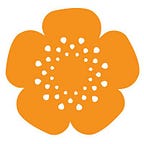Four Young Leaders on Ensuring Youth Participation in Sexual and Reproductive Health and Rights
International Youth Day is a moment to commemorate and mainstream the voices, actions, and initiatives of young people. Their perspectives and meaningful engagement are crucial to effectively addressing the world’s most pressing issues.
Many of those issues — such as poverty, lack of education, and inequality — cannot be solved without the realization of sexual and reproductive health and rights (SRHR), which is a state of physical, emotional, mental, and social wellbeing in relation to all aspects of sexuality and reproduction.
For International Youth Day this year, we asked four young leaders at EngenderHealth to tell us their advice on how institutions and young people themselves can ensure meaningful youth participation in SRHR.
Ana Aguilera: Young Voices Matter
“Adults and adult-led organizations need to do a better job of listening more to the needs, desires, hopes, and dreams of adolescents and youth. As experts in their own lives, young people contribute every day to the realization of SRHR by serving as key advocates for SRHR, leading their peer groups, staying in school, accessing sexual and reproductive health (SRH) services when they need them, and by spearheading their own initiatives, like media- and arts-based awareness campaigns.
Meaningfully including young people requires adults and adult-led organizations to do two things: First, and most importantly, they must listen intently and regularly to the needs, perspectives, and voices of young people. Second, they must shift their power and let go of the privilege of seniority. By working together in equal partnerships, I believe we can address the myriad of SRH challenges we face in a smarter, faster, and more equitable way!
Young voices matter, young people’s leadership is crucial to advancing SRHR within their communities, and they should never let anyone tell them otherwise!”
Ana Aguilera, 29, is the Deputy Director of Adolescent and Youth SRHR at EngenderHealth. Ana works to better reach and engage with adolescents and youth around the world to advance their SRHR. She also works alongside her team to integrate a cross-cutting gender, youth, and social inclusion (GYSI) lens across programs, processes, and internal structures.
Meskerem Demessie Setegne: Be a Changemaker
“Institutions need to ensure young people have access to accurate information on available SRH services and the necessary skills to make decisions. SRHR programs must prioritize the needs of young people and include meaningful youth participation in program design, implementation, and monitoring by way of establishing youth advisory boards with equal representation by age and sex.
Young people need to make their voices heard; they can do this by utilizing social media and existing platforms within their community as well as by participating in youth-led organizations.
My message to young people: Never stop learning and wanting to know more about your sexual and reproductive rights. Do not hesitate to talk to those closest to you or seek a healthcare professional’s advice when it comes to your reproductive needs. Furthermore, be a changemaker in your community — do not be shy to educate your peers.”
Meskerem Demessie Setegne, 29, is an EngenderHealth SRHR project director and regional team lead for urban programs in Ethiopia. Meskerem oversees the management and coordination of two projects focused on SRHR and sexual and gender-based violence (SGBV) for young women and girls.
Mahin Khan: Knowledge is Power
“A strong commitment by top decision-makers is a must to promote SRHR. India has one of the youngest populations in the world, so the political leadership must focus on building a resourceful cadre in the country, but that will not happen without taking the SRHR of young people into account.
At the local level, community-based organizations and small NGOs should come together to ensure the participation of young people. There is a need for youth-friendly spaces where young people can access SRHR services in a way that is safe, confidential, and non-judgmental. Peer educators should be utilized to help diminish taboos surrounding SRHR, as young people offer more innovative solutions when it comes to societal problems.
It’s important that young people have access to SRH information so they can take charge of their lives and are able to explore, experience, and express their sexuality in healthy, positive, pleasurable, and safe ways.”
Mahin Khan, 28, is an EngenderHealth clinical trainer in India. Mahin trains staff at health facilities on postpartum and postabortion intrauterine devices (IUDs), infection prevention, family planning counseling, and SRHR in addition to implementing quality improvement activities to ensure better service provision at health facilities.
Godfrey Mitande: SRHR are Human Rights
“Institutions at all levels should make sure to engage with young people when it comes to developing youth agendas and addressing prevailing social norms. Institutions that work on SRHR should convene consultative meetings with young people to collect their views on SRH services and ensure that availability and accessibility of affordable, equitable, and quality youth-friendly SRH services are conveniently located and provided in a non-judgmental manner by trained healthcare workers.
SRHR are human rights. Therefore, women, girls, and young people — especially the most marginalized groups — must have uninterrupted access to SRH information, services, and commodities.”
Godfrey Mitande, 27, is EngenderHealth’s gender and youth advisor for the USAID Boresha Afya (“Improve Health”) — Southern Zone program in Tanzania. Godfrey works to integrate gender into the continuum of SRH and HIV/AIDS care and treatment services, with a focus on youth, adolescent girls, and young women.
Originally published at https://www.engenderhealth.org on August 12, 2020.
